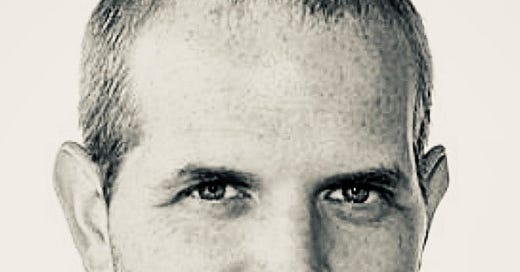Where are you from, and why there?
I grew up in Lincoln, Nebraska. It’s not the most exciting city in the US, but it has charm. After living in Thailand for a decade, we returned to Lincoln. Somehow it works well as a home base for our global projects.
Which issues do you work on/care about, and why?
My colleagues and I work with companies and governments to promote responsible business, empower communities, and foster more resilient ecosystems. We do this by working with affected individuals and communities (rights holders) and putting them in the best possible position to prevent business-related harm to people and the planet. We’re all about enhancing accountability and agency.
How did you get involved?
My PhD (Human Rights and Peace Studies) study explored how ordinary people in Myanmar protected themselves and created change under military rule. This was before the transition, during a time when Myanmar was quite isolated. I traveled the country and spoke with people in their environments. It was an amazing experience to learn from incredibly resilient people. (I also did a bit of field work in North Korea, which is another story.) Across Myanmar, I learned how remittances from migrant workers transformed local livelihoods and politics. I saw the direct and indirect power of business. This prompted me to work with various migrant worker and labor rights groups throughout Southeast Asia. When the United Nations Guiding Principles on Business and Human Rights (UNGPs) were endorsed in 2011, I immediately got involved in collaboration with other human rights practitioners. To this day, everything I do is predicated on learning from local communities and placing them at the center of sustainable solutions.
What are the biggest challenges for the issue(s) today?
The field of business and human rights regularly relies on top-down, managerial solutions. This results in progress on paper, but not on the ground, where it is needed most. The field is ticking boxes but not creating real-world change. The ongoing pandemic has exposed and exacerbated the scale of business-related harm that people around the world encounter. Now it’s time to address and transform those realities. That will require a shift away from corporate-minded efforts to ones that are rights-holders-centric and predicated on a human rights-based approach: ones that focus on affected individuals and communities, that treat affected people as rights holders with agency, that listen to rights holders and engage their lived realities, that are empowering and put people in the best possible position to confront business-related harm and demand respect for human rights. A substantial paradigm shift — that is the task of the day in the field of business and human rights. This is the best and only way to foster a more just and sustainable future.
Who are your most frequent allies in your field? Any surprises?
I have been really lucky. I’ve had some amazing mentors — Surya Deva, Sriprapha Petcharamesree, Mike Hayes, to name a few. I’ve been a part of some great projects and partnerships. We rely heavily on affected communities and the grassroots organizations who serve them. They have always pointed us in the right direction, even in tough, wary contexts. Local human rights defenders and organizations quite literally make the impossible possible. I’m endlessly grateful to them.
In terms of surprises, two things come to mind. First, we have worked with UNDP B+HR for several years. I have been impressed by their ability to ask tough questions and challenge conventional practices. This kind of leadership can be transformative at many levels. Second, I have been pleased to see many of our corporate clients get very serious about respect for human rights. They have hired dedicated human rights practitioners and initiated substantial changes. They are foregoing shortcuts and easy solutions and committing themselves to genuine responsibility and sustainability. That gives me a ton of hope for the future of the business and human rights (BHR) field.
What drives you?
Of course, I am driven by the rights holders and human rights groups that we work for and with. Their resilience and determination are always a source of inspiration. But, for me, the drive is intrinsic. It’s part of who I am. I was born to do this.
What do you want your career/advocacy to stand for?
One word: Agency. Too often, affected rights holders are treated as subjects of charity or passive bystanders. Everything I have seen and done has highlighted the importance of agency. Agency changes everything. Human rights are timeless because they enable people to act on their own behalf. They put people in a position to be heard and protect themselves and their fellow human beings. When people have agency, they can prevent harm, empower themselves, and drive change. That is when responsible business becomes business-as-usual. While advancing agency can be more art than science, I believe it is the best and only pathway to a more just, sustainable future.





